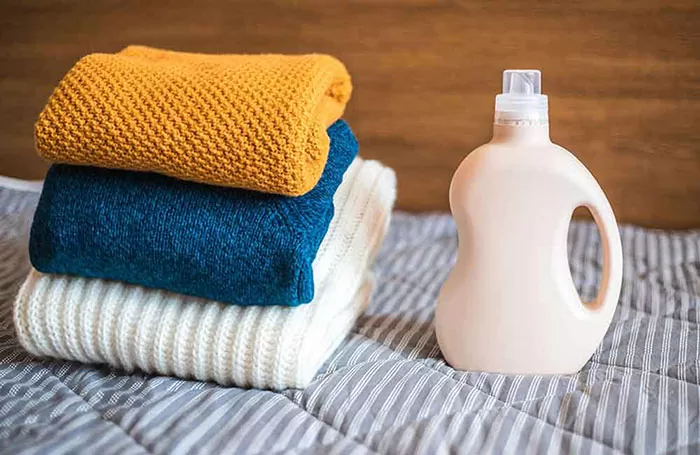Essential Tips for Caring for Your Clothes

1. Washing Tips
Proper washing is the first step in caring for clothes. Paying attention to the fabric type and washing method is crucial.
- Read the Care Label: Always check the clothing label before washing. These labels provide important information about the appropriate washing temperature, detergent, and drying conditions.
- Separate Clothes by Color: Avoid washing light and dark colors together, as this can cause color bleeding and damage light-colored garments.
- Use Gentle Detergents: Strong detergents can damage fabric fibers. Use mild or special detergents for delicate fabrics.
- Cold Wash for Delicate Fabrics: Fabrics like wool, silk, or other delicate materials should be washed in cold water to prevent shrinkage and maintain their quality.
- Hand Wash for Sensitive Garments: Items like wool sweaters or silk blouses are best hand-washed to preserve their shape and texture.
2. Drying Tips
Drying clothes properly also has a big impact on their longevity.
- Avoid Direct Sunlight: Drying clothes in direct sunlight can fade colors and reduce fabric quality. It’s better to dry clothes in a shaded area or a well-ventilated, dry space.
- Limit Use of Dryer Machines: While dryers are convenient, air-drying is better for delicate fabrics, which can be damaged by the heat of a dryer.
- Shake and Smooth Clothes Before Drying: Shake and smooth garments before hanging to reduce wrinkles, which minimizes the need for ironing.
3. Ironing Tips
Ironing can make clothes look clean and neat, but it’s essential to follow some specific guidelines.
- Adjust Temperature According to Fabric Type: Each fabric requires a different ironing temperature. For example, cotton needs high heat, while silk or synthetic fabrics should be ironed on low heat.
- Use Steam for Heavy Fabrics: Steam helps to soften fabrics and remove wrinkles. For thick fabrics like wool or suit jackets, steam is especially effective.
- Iron Dark Clothes Inside Out: Iron dark clothes inside-out to avoid shiny spots and color fading.
- Use a Pressing Cloth for Delicate Fabrics: For delicate and thin fabrics, place a cotton cloth between the iron and garment to prevent direct heat damage.
4. Proper Storage Tips
Storing clothes correctly helps prolong their lifespan and maintains their quality.
- Use Suitable Hangers: To prevent fabric from stretching, use appropriate hangers. Heavy items like coats or jackets shouldn’t be hung on thin plastic hangers.
- Fold Knitwear and Woolen Garments: Knitwear and woolen items, like sweaters and cardigans, should be folded and stored in drawers to avoid stretching and deforming.
- Store in Garment Bags: For special or delicate items like evening gowns or wool coats, use garment bags to protect them from dust and moisture.
- Use Silica Gel or Fresheners: Place silica gel packets or fresheners in closets to prevent mold growth and keep clothes fresh and odor-free.
- Avoid Long-Term Hanging for Heavy Garments: Heavy garments, like coats or thick jackets, should not be hung for extended periods, as they may stretch out of shape.
5. Extra Care for Special Fabrics
Certain fabrics require more specific and careful attention. Here are some examples:
- Wool Garments: Wool items are best dry-cleaned, but if washing at home, use cold water and mild detergent.
- Silk Fabrics: Silk should be hand-washed with mild detergent and ironed at a low temperature.
- Leather and Suede: Use specialized cleaners for leather and avoid water contact. A soft brush is useful for cleaning suede.
6. Seasonal Storage Tips
When changing seasons, you can store seasonal items to save space and prevent clothing damage.
- Wash Clothes Before Storing: Wash and dry seasonal clothes before storing to prevent lingering stains or odors.
- Use Compression Bags for Seasonal Storage: Compression bags save space and protect clothes from dust and moisture.
- Store in a Cool, Dry Place: Avoid storing clothes in damp, warm areas like basements or attics, as this can lead to mold growth and unpleasant odors.
User reviews
Rate
5 Stars0
4 Stars0
3 Stars0
2 Stars0
1 Star0



